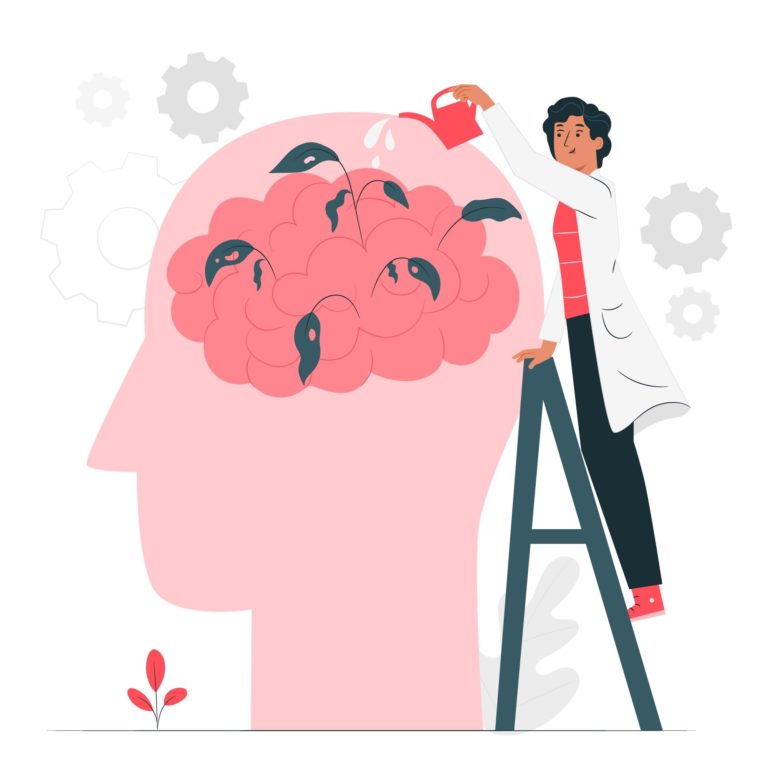The weight of the world is immense. I’m sure you can feel it no matter where you are on the earth — I know I can. What do you do when the world appears to be crumbling (literally) and the people who inhabit it appear to be divided? It’s difficult. The globe is going through terrible times, regardless of where you are on the financial ladder, what position you occupy in life, or which political side you are on. The fact that 75 per cent to 95 per cent of persons with mental problems in low- and middle-income nations are unable to receive mental health care at all, and that access in high-income countries is not much better, is an unsettling truth. The mental health treatment gap is exacerbated by a lack of investment in mental health that is disproportionate to the overall health budget.
Our happiness is not just dependent on our surroundings
This is certainly a difficult problem with no easy fix. Living in poverty has a negative impact on one’s well-being, according to research on the subject of well-being. However, research in the same field suggests that our attitudes, what we choose to focus on, and the habits we create in our daily lives account for a significant portion of our happiness.
Personal control is a hot topic these days
There will always be aspects of our lives over which we have no control. There are also some aspects over which we have some personal control. We may not be able to change our circumstances, but we can train ourselves to shift our focus of attention and adopt routines and activities that promote good mental health.
While persons with mental health illnesses certainly require extra professional assistance, there may be activities and habits that might offer them respite and coping skills until that assistance is accessible.
What should be our reaction?
Mental health is a complicated subject. There are numerous determinants of mental health, the majority of which are social rather than medical. We understand that we need to handle it on multiple levels: system and society, community and neighbourhood, individual and home. Priorities include the following:
Better support –
We have some evidence-based treatments and services available, but they are rarely, if ever, available without long wait times. There is a group of persons who are too sick to receive some assistance but not sick enough to receive the alternative. And far too many existing approaches fail to take into account people’s diverse requirements and preferences.
Integrated services –
Just as hospitals and clinics are vital for delivering mental health support, so are schools, businesses, and community settings. Better integration of care systems – primary care, secondary care, and the voluntary sector – is needed, as current policy encourages and pilots. We need to put in a lot of work in terms of prevention, as well as a lot of effort in terms of delivering innovative trauma-informed solutions.
Recognizing mistrust –
Fundamental issues, such as the application of the Mental Health Act, have left many people traumatised and sceptical of the system designed to ‘assist’ them. Another issue is medication, which, while it can be life-changing for some, is still too frequently prescribed as the only option and comes with a slew of negative side effects.
Working with real-life examples –
People who have experienced mental illness themselves are the most knowledgeable. We need to make more use of this knowledge. It should be at the heart of the way services and supports are developed and delivered.
Things that may be of assistance
Reaching out to friends and/or family, as well as skills like meditation, progressive muscular relaxation, and particular breathing techniques, are all examples of activities that can help.
Such activities are likely to be even more effective as a protective measure to prevent further deterioration in mental health for those who do not have a mental health issue but have found themselves unable to manage on occasion.
“Inequality in mental health care has gotten a lot of attention in the last year. While this is unjust and has to be addressed on a global scale, it is simply beyond the control of the individual who finds himself or herself in these unfavourable circumstances to make a speedy adjustment.
We all have the power to select what we focus on in our life, as well as the skills and activities we develop and participate in to improve our mental fitness.”
References:
- @Shout-admin. (2021, September 10). Mental Health In An Unequal World. . .. My Mind Pal. https://blog.mymindpal.com/mental-health-in-an-unequal-world/
- The unequal mental health toll of the pandemic. (1970, August 22). The Health Foundation. https://www.health.org.uk/news-and-comment/blogs/the-unequal-mental-health-toll-of-the-pandemic
By Saloni Lad


